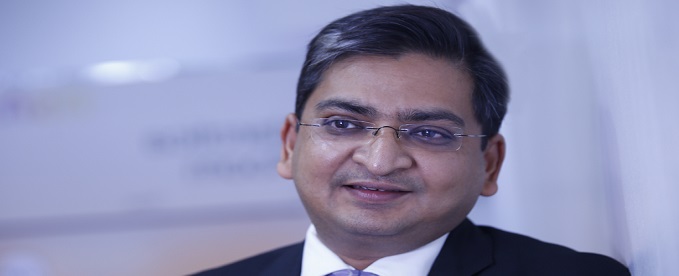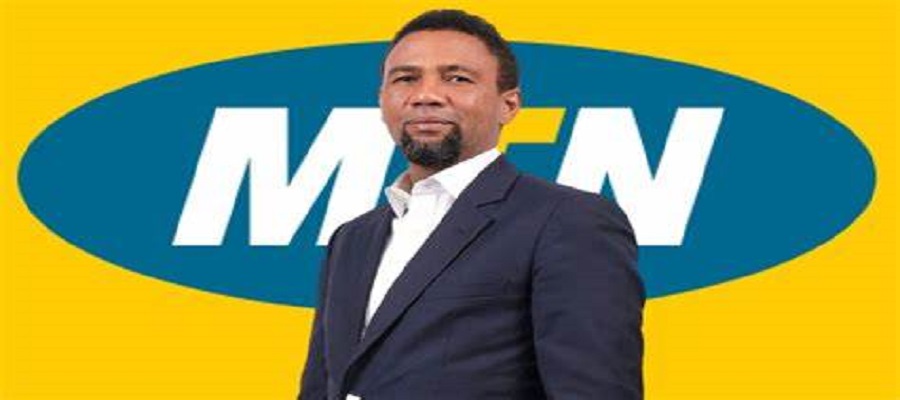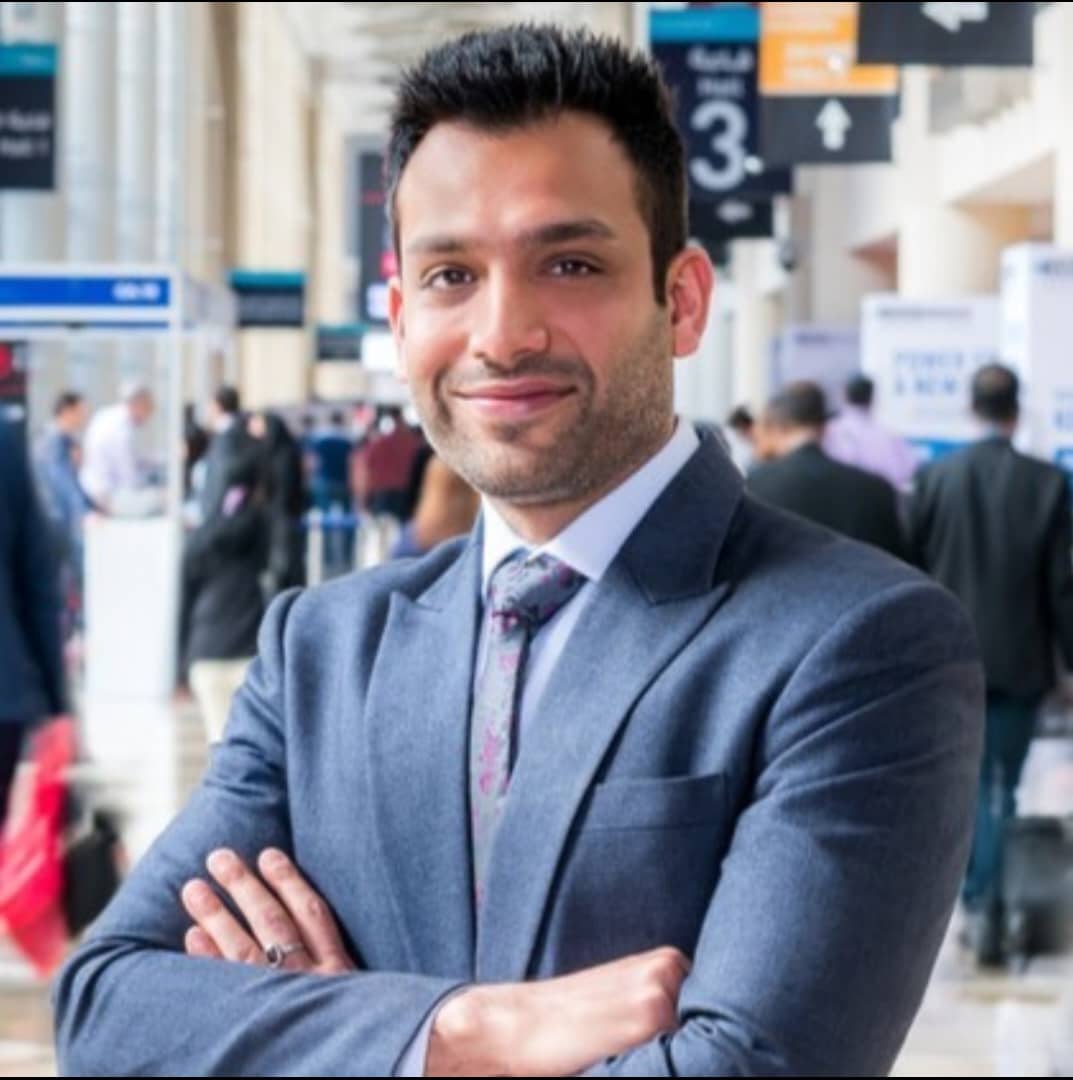Telecom
Fixed Broadband – The Next Big Thing for Nigeria

By: Rajiv Aggarwal
Nigeria urgently needs rapid rollout of broadband services to address the country’s various socio-economic challenges.

Rajiv Aggarwal, Head of CEWA Market Unit at Nokia
With a population estimated at about 203 million people, 23 percent of the overall population is currently unemployed.
Furthermore, 55 percent of the country’s youth are unemployed, which presents a massive challenge considering that over half the population is under the age of 25.
According to the Nigerian Communications Commission (NCC), the country’s broadband penetration as at June 2021 stood at is 39.9 per cent with a broadband subscriptions figure of 76.29 million.
Therefore, the country is faced with the tremendous challenge of puttingits largely unemployed and underemployed population to work.
Addressing Nigeria’s socio-economic challenges
The rapid rollout of broadband services will address various socio-economic challenges faced by the country, including the need to grow its economy, job creation, expansion of the tax base, and improving digital literacy and educational standards.
This will also address identity management and security challenges through the effective use of technology, increase financial inclusion and deliver a broad range of services to its people to improve their quality of life and work towards achieving the UN’s 2030Social Development Goals.
The new Broadband Plan is designed to deliver data download speeds across Nigeria of a minimum of 25Mbps in urban areas, and 10Mbps in rural areas, with effective coverage available to at least 90% of the population by 2025 at a price not more than N390 per 1GB of data.
The Broadband Plan will drive increased fibre connectivity in schools, healthcare facilities, government buildings and towers, amongst others.
Notably, a large traffic volume within the middle mile networks is still backhauled using microwave equipment today.
While this type of backhaul was adequate for narrow-band voice communications, it is no longer adequate for the effective delivery of bandwidth-intensive broadband applications driving current demand.
The need to make fibre-optics the de-facto means of backhauling traffic within middle-mile networks, for the effective deployment of broadband networks, cannot be overemphasized.
Last-mile connectivity in Nigeria is also largely mobile with comparatively lower investments made in fixed-line infrastructure within the past two decades.
There is therefore a need for improvement in last-mile connectivity for increased adoption.
More submarine cable access will become available as new players such as the 2Africa Consortium extend broadband cable branches to Nigeria, boosting broadband penetration across the country.
The consortium recently announced the addition of four new branches to the 2Africa cable, which will extend 2Africa’s connectivity to the Seychelles, the Comoros Islandsand Angola; and bring a new landing to South-east Nigeria.
The role of fibre and fixed wireless access
To date, fibre density in Nigeria remains particularly low with approximately 10% of base stations connected to fibre and most of the fibre networks overbuilt on the same routes.
The continued reliance on narrowband microwave links remains a limiting factor in terms of aggregate capacity and stability of mobile networks especially in a challenging electricity supply environment.
Denser metro fibre networks will also provide the essential building blocks for future Fibre-To-The-X networks. In addition, the massive development in the real estate sector of the economy with several ‘’gated communities ‘’ being built in cities like Lagos, Abuja, Kano, PHC, Ibadan are also fuelling broadband adoption in Nigeria.
Fibre access is considered the biggest and fastest growing technology with the largest eco-system of players that includes fixed and converged operators, governments, cities, utilities, enterprises, and infrastructure investors.
Fibre access networks are becoming the unifying infrastructure that underpins the entire telecom industry, connecting everyone to everything.
The COVID pandemic has highlighted the “digital divide” and the importance of broadband connectivity worldwide.
New and more powerful fixed networks are therefore needed to increase speeds and improve the user experience.
While fibre remains a preferred choice, it can be expensive, time consuming, and challenge to serve homes and businesses.
To address the broadband need in underserved rural and suburban markets where the economics of FTTH is too cost-prohibitive, fixed wireless access (FWA) is seen as a good substitute via 4G and 5G to enable high-speed broadband.
With expanding network capacity afforded by 5G and new sub-6 GHz and millimeter wave spectrum, more and more operators see FWA as a complement to their “fibre plus FWA” broadband strategy.
The fixed wireless access (FWA) market continues to expand, with the underlying broadband demand arguably accelerated by the COVID pandemic.
The market growth is supported and fuelled by robust product innovations.
It is therefore important to keep pushing the boundaries of fixed technology and make sure the investments in fixed networks made today will be usable for many years to come to meet the inevitable growth in demand for faster, more responsive, and immersive internet services.
Fibre broadband investment enables a premium customer experience, competitive advantage, the lowest operational costs (OPEX), and the lowest power consumption of any broadband technology, with the additional opportunity of service convergence (residential, enterprise and 5G transport).
As a major global equipment vendor with a leading set of Fixed Access technologies, Nokia partners with fixed, converged, mobile and cable operators to deliver extraordinary Gigabit broadband services and enable them to address the unprecedented demands on their networks today.
Our ability to take our customers beyond the network termination point and deliver gigabit broadband throughout the home is another strength, especially with the increased data consumption associating the pandemic.
Fixed broadband will enable Nigerian Service Providers to provide faster speeds and better coverage to customers while achieving the price points highlighted in the Nigeria Broadband Plan.
The use of passive fibre networks along with a shared infrastructure model will greatly reduce the costs of deployment while maximizing the Capex investment.
Fibre not only ensures the speeds of today, but that the capacity needed tomorrow can be met.
Fixed broadband and fibre not only ensure faster download speeds for end users on fibre, but can also serve as an anchor point for densification of mobile networks as well serving as a connection point for wireless access points and even cell towers in some instances.
All of this translates to greater broadband penetration in Nigeria and increased services and benefits for CSPs and their end customers.
As part of the 2Africa Consortium, Nokia is facilitating increased fibre deployments in Nigeria.
Alcatel Submarine Networks (ASN), a division of Nokia that has been selected to deploy the new branches, which will increase the number of 2Africa landings to 35 in 26 countries, further improving connectivity into and around Africa including Nigeria.
Nokia also provides GPON solutions to several providers in Nigeria, thereby increasing fixed broadband speeds using FTTH.
One of the examples is that Nokia is providing Spectranet, Nigeria’s largest Internet Service Provider, with its GPON solution and enabling 100+ Mbps ultra-broadband services to end users in Lagos and Abuja as part of an extensive Fiber-to-the-Home (FTTH) rollout.
This kind of deployments with Nokia’s superior fixed network technologies, in turn, enables Nigerian Service Providers to offer up to 1Gbps speeds to end customers using passive fibre connections.
Rajiv Aggarwal, Head of CEWA Market Unit at Nokia
Telecom
Toriola, MTN Nigeria CEO again Defends Tariff Hikes amidst Backlash

Karl Toriola, chief executive, MTN Nigeria has defended recent tariff hikes by mobile network operators, stating they are essential for the “survival” of the telecoms industry in Nigeria, despite significant criticism.

Karl Toriola, chief executive, MTN Nigeria
The Nigerian Communications Commission (NCC) granted mobile network operators permission to raise tariffs by up to 50% last month, a change reportedly implemented on 11 February.
The increase has sparked public outrage, as mobile connectivity has become a vital necessity in daily life across the West African nation.
In an interview with Developing Telecoms, Toriola pushed back against criticism that the price surge was excessive, arguing that tariffs should have increased by approximately 300% to reflect the naira’s sharp devaluation and the country’s soaring inflation.
Addressing the impact of currency devaluation, Toriola emphasised that MTN purchases network equipment and software in US dollars, a process that has become significantly more expensive. With the naira’s decline, operators are now receiving three times fewer dollars than they did in 2023, making operations more challenging.
In February 2023, businesses could exchange 460 naira for one US dollar, but the currency has since devalued sharply. At the time of writing, a single dollar was worth 1,510 naira.
As Nigeria grapples with the sharp devaluation, MTN has been severely affected.
The company was technically bankrupt in 2023 as its liabilities surpassed its assets—a deeply concerning issue for the wider MTN Group, as Nigeria remains one of its highest revenue-generating markets.
“Because of these factors, we’ve seen our costs rise dramatically. The cost of leasing tower space and supplying energy to cell sites increased by 120% in the first three quarters of 2024. So, in comparison, a 50% tariff increase is not that high,” said Toriola.
Telecom
IoT West Africa & Data Centre Cloud Expo 2025 Set to Boost Africa’s $180Bn Digital Economy

The IoT West Africa & Data Centre Cloud Expo 2025, co-located with Power and Water Nigeria, is poised to play a crucial role in boosting Africa’s digital economy, projected to reach $180 billion by 2025 and contribute 5.2% to the continent’s GDP.

Organized by Vertex Next, the three-day event will take place from May 13th to 15th, 2025, at the Balmoral Convention Centre, Federal Palace Hotel, Lagos. It will convene government leaders, industry experts, investors, and innovators to explore the latest advancements in IoT, AI, cloud computing, digital infrastructure, and energy solutions.
In a statement made available to journalists in Lagos, Vertex Next Managing Director, Shitij Taneja, stated that this influential event will significantly contribute to the continent’s digital economic growth.
He assured that the expo will feature a comprehensive conference program focused on the transformative power of IoT, AI, and digital technologies across various African industries.
According to Taneja, discussions will center on how these technologies drive economic expansion, improve connectivity, and increase efficiency in key sectors like telecom, energy, finance, and e-commerce. Government officials and business leaders are also expected to collaborate on strategies for scaling digital infrastructure and leveraging data for innovation and sustainable development.
As demand for secure, efficient, and scalable digital infrastructure surges, Africa’s data center market is expected to grow at a CAGR of 12% through 2030, reaching a valuation of over $5 billion.
The expo will feature high-level discussions on critical infrastructure development, investment opportunities, cybersecurity, and AI-driven data center expansion. Thought leaders from global cloud and data center giants will share insights into building future-ready facilities that power industries and drive economic progress.
With Africa’s power sector undergoing transformation, discussions will focus on smart grids, energy storage, and sustainable power solutions to support the continent’s growing digital economy.
The African Development Bank estimates that investment in energy and utilities must increase to $70 billion annually to meet rising demand. Industry leaders will explore the role of IoT and AI in optimizing utilities, managing resources efficiently, and developing smart, connected cities.
The rise of digital banking, fintech, and e-commerce is reshaping consumer experiences and financial transactions across Africa. The fintech sector alone attracted over $3 billion in investments in 2023, and e-commerce is projected to exceed $75 billion in value by 2028.
This expo will highlight how automation, AI, and IoT are creating secure, seamless, and scalable financial solutions, ensuring that businesses stay ahead in the fast-paced digital landscape.
Taneja disclosed that the IoT West Africa & Data Centre Cloud Expo 2025 aligns with Nigeria’s National Digital Economy Policy and Strategy (NDEPS) and Agenda 2063 of the African Union, both of which prioritize technological innovation, digital infrastructure, and economic diversification.
By bringing together policymakers and industry stakeholders, the event aims to support regulatory frameworks for digital transformation, foster collaboration between the public and private sectors, encourage foreign direct investment (FDI) in ICT and energy, and accelerate initiatives such as Smart Cities and e-Governance.
Telecom
NITDA Pledges to Foster Innovation with Cloud Infrastructure and AI Applications

National Information Technology Development Agency (NITDA) has reaffirmed its dedication to fostering an innovative ecosystem that balances regulation with industry growth. The agency is investing in cloud infrastructure, data classification, and AI applications to establish Nigeria as a leading digital hub in Africa.

Kashifu Inuwa, NITDA’s Director General, emphasized this commitment while speaking at the Africa Hyperscalers Digital Infrastructure Outlook 2025. The event gathered industry experts to explore Africa’s role in the expanding global AI-driven infrastructure boom.
In his remarks, Inuwa highlighted NITDA’s dual regulatory framework: rule-based regulation, involving strict compliance guidelines, and non-rule-based regulation, which allows for industry-led innovation with established benchmarks.
“Before we regulate anything, we need to be aware of the landscape, we need to be intelligent, we need to have data and make sense out of that data, we need to be dynamic because technology is fast-changing and we need to develop that agility within the regulatory framework,” Inuwa stated.
He also discussed the Cloud First Policy, introduced in 2019 to discourage excessive reliance on physical data centres. This policy encourages government agencies and private businesses to leverage cloud computing and digital solutions. Initially, businesses were granted waivers to use public cloud infrastructure, but NITDA is now pushing for local data centres to enhance their capabilities.
A major milestone for NITDA was its successful engagement with global hyperscaler providers, including Google Cloud, which pledged to collaborate with local data centres to drive cloud adoption and establish a hyperscaler data centre in Nigeria. This follows a meeting between Google CEO Sundar Pichai and President Bola Ahmed Tinubu in Paris, where the President shared his transformative ambition for Nigeria.
To further drive cloud adoption, NITDA is finalizing a framework that will mandate data classification, ensuring that certain data categories remain within Nigeria. This move is expected to attract more cloud service providers and bolster the country’s digital sovereignty.
Emphasizing the importance of AI applications, Inuwa disclosed that NITDA is prioritizing AI to enhance governance, regulation, and service delivery. He asserted that AI can revolutionize governance and business operations by automating processes, enhancing regulatory efficiency, and developing knowledge management systems.
Dr. Nadu Denloye, Co-founder of Telnet Nigeria Limited, also spoke at the event, highlighting Africa’s remarkable digital transformation driven by connectivity advancements, cloud adoption, data centres, AI, and a growing digital-native population. She expressed confidence in crafting solutions to drive Africa’s digital growth.
Other notable panelists included Dr. Ayaotunde Coker, CEO Open Access Data Centres and Chairman of the Africa Data Centres Association; Johnson AgboGbua, CEO of Kasi Cloud; Obinna Isiadinso, Data Centres Global Sector Lead at International Finance Corporation; Kazeem Oladepo, Chief Operating Officer at IHS; and Abibat Kazeem, Commercial Director at Bayobab.
This commitment by NITDA underlines its dedication to advancing Nigeria’s position as a digital leader in Africa through innovative solutions and strategic regulations.

 E-Financial2 days ago
E-Financial2 days agoSERAP Gives CBN 48-Hour Ultimatum to Withdraw ATM Fee Hike

 E-Financial2 days ago
E-Financial2 days agoFG Seeks Fresh $300m Loan from World Bank for Health Security

 General News2 days ago
General News2 days agoFG Drops Merger of NCAA, NAMA

 News2 days ago
News2 days agoBinance Chief Insists Some FG Officials, Reps Demand $150m Bribe

 Telecom21 hours ago
Telecom21 hours agoToriola, MTN Nigeria CEO again Defends Tariff Hikes amidst Backlash

 News2 days ago
News2 days agoinDrive Unveils Cashless Bank Transfer Feature in Nigeria

 E-Financial2 days ago
E-Financial2 days agoCardinalStone Acquires Radix Pension Managers

 E-Business21 hours ago
E-Business21 hours agoSouth Korea Joins List of Countries Banning DeepSeek over Security Concerns























